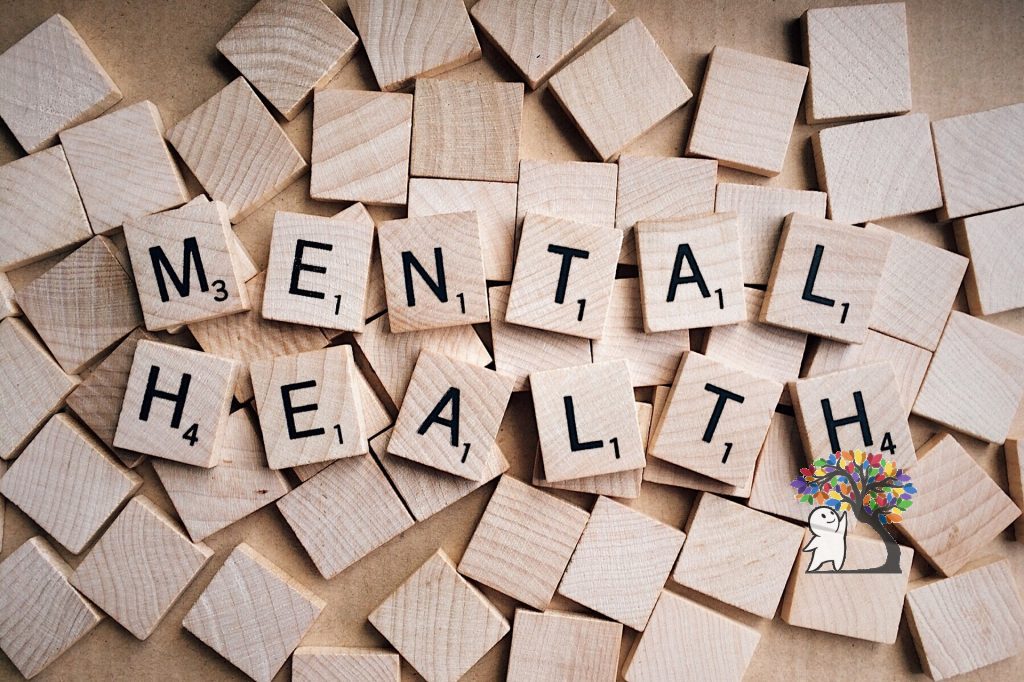Mental Illness vs Mental Well-being

Differentiating Between Mental Illness and Mental Well-being
Mental health awareness has become a prominent topic in the world we live in today. Ranging from acknowledging it as a global health problem to educating the public on what mental health is all about, mental health is an important topic to be discussed. Despite the differences in the terms “Mental Illness” and “Mental Well-being”, there are still people who can sometimes get confused and mix up the two. In this article, I will be sharing with you what mental illness is and what mental well-being is, followed by their relations.
What is Mental Illness?
Let us begin with what mental illness is. According to the World Health Organization (2019), mental illness also known as mental disorders, “compromise a broad range of problems, with different symptoms. However, they are generally characterized by some combination of abnormal thoughts, emotions, behavior and relationships with others”. In other words, mental disorders are like mental health conditions. Some examples of mental disorders include depression, schizophrenia, anxiety or mental disabilities due to other causes such as drug abuse.
It is important to have a basic understanding of what mental disorders are about as it is a health issue that affects a majority of the population. It is also good to have basic knowledge as it can help promote more empathy and acceptance towards people with mental disorders and also towards the topic on mental disorders.
What is Mental Well-being?
What is meant by mental well-being? According to the World Health Organization (2019), mental well-being is defined as “a state of well-being in which the individual realizes his or her own abilities, can cope with the normal stresses of life, can work productively and fruitfully, and is able to make a contribution to his or her community”.
However, different people may have their own meaning of what a positive mental well-being is to them. Thus, it is also dependent on a person’s sociocultural context and a person’s own interpretation of what they perceive as a positive mental well-being. Mental well-being is important because it can also affect our physical well-being. Additionally, understanding what affects our mental well-being be it positively or negatively, can help us in achieving mental wellness.
How Mental Well-being Relates to Mental Illness
As mentioned earlier about coping with the stresses of life, certain aspects of our lives can feel overwhelming at times. Being overwhelmed can sometimes lead to negative impacts on our mental well-being. At times, people may develop symptoms of mental health disorders due to overwhelming emotions. For example, the effects of stress from work or other life aspects can sometimes result in symptoms of depression, which are linked to constant low moods, loss of interest and many more.
While some mental illnesses may develop from stress and emotional factors, others may develop from various factors or a combination of factors such as physical, genetics, psychological and environmental. For example, the United Kingdom’s National Health Service (2019) states that schizophrenia does not have exact causes but rather a combination of different factors that leads to a person developing the condition. However, not all mental disorders are the same. A negative mental well-being may have the possibility to translate into symptoms of mental disorders. If possible, we should all try to strive for what we perceive as a state of a positive mental well-being, and not be afraid to seek help, whether professional or not, when we find ourselves in times of trouble.

To conclude, mental disorders are as important as physical health conditions and it should be seen something of importance. People with mental conditions should not be seen as inferior or different because mental disorders are real health conditions too. We as people must not succumb to the stigma and stereotypes that surround the topic on mental health but instead learn and understand how to be more accepting as people with mental conditions are still people that should be treated equally.
References
“Mental Disorders”. 2019. World Health Organization. https://www.who.int/mental_health/management/en/.
“Promotion of Mental Well-Being”. 2019. South-East Asia Regional Office. http://www.searo.who.int/entity/mental_health/promotion-of-mental-well-being/en/.
“Schizophrenia – Causes”. 2019. Nhs.Uk. https://www.nhs.uk/conditions/schizophrenia/causes/.




Responses